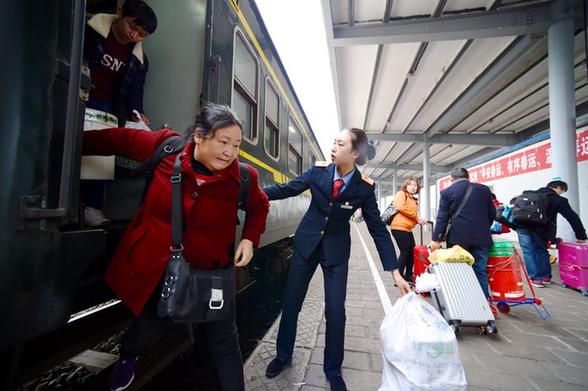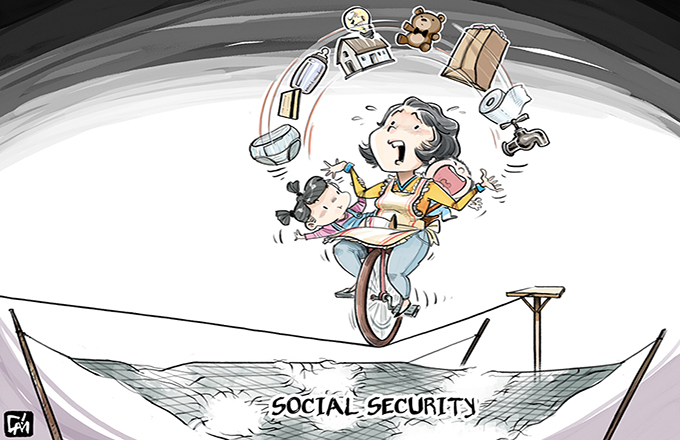More migrant workers spend festival at 'home'
 |
|
Attendant Huang Huixin helps a passenger to get off the special train K4186 for migrant workers at Quxian Railway Station in Quxian County, southwest China's Sichuan Province, Jan. 14, 2017. The train, during its 2,084-km-long journey from Fuzhou to Sichuan's Guang'an, took over 2,500 migrant workers home at Fujian, Jiangxi, Hubei, Shaanxi and Sichuan provinces in over 27 hours.[Photo by Jiang Kehong/Xinhua] |
AN INCREASING NUMBER OF MIGRANT WORKERS, particularly those born in the 1980s and 1990s, are choosing to celebrate Spring Festival in the cities where they work instead of returning to their hometowns. Guangzhou Daily commented on Wednesday:
It is understandable that younger migrant workers choose to spend the holiday far away from home as the annual travel rush makes traveling a challenge at this time of year.
For those migrant workers who choose not to go home, they are granted the "luxury" of touring the less crowded cities they may not otherwise have the time to explore.
Their staying out during the holiday also means there is less of a labor shortage in the big cities during Spring Festival, which has previously been the case, and it relieves some of the pressure on the nation's railways.
In return, mega-cities such as Beijing and Shanghai should take the opportunity to help their migrant populations develop a better sense of belonging. The options are plenty: Free admission to local attractions, organized reunion dinners, and complimentary health checks, for example.
Helping migrant workers and their families to get accustomed to urban life and eventually settle in cities would make a major difference to their lives. Non-local youngsters are usually more inclined to seek permanent residence in the big cities and have a stronger urge to fight for it. They should be offered better welfare, be it medical services or education resources.
That many urban governments have made some progress in loosening the restrictions on local household registration is a laudable step forward. They are also making efforts to grant non-local citizens fairer access to public services.





















